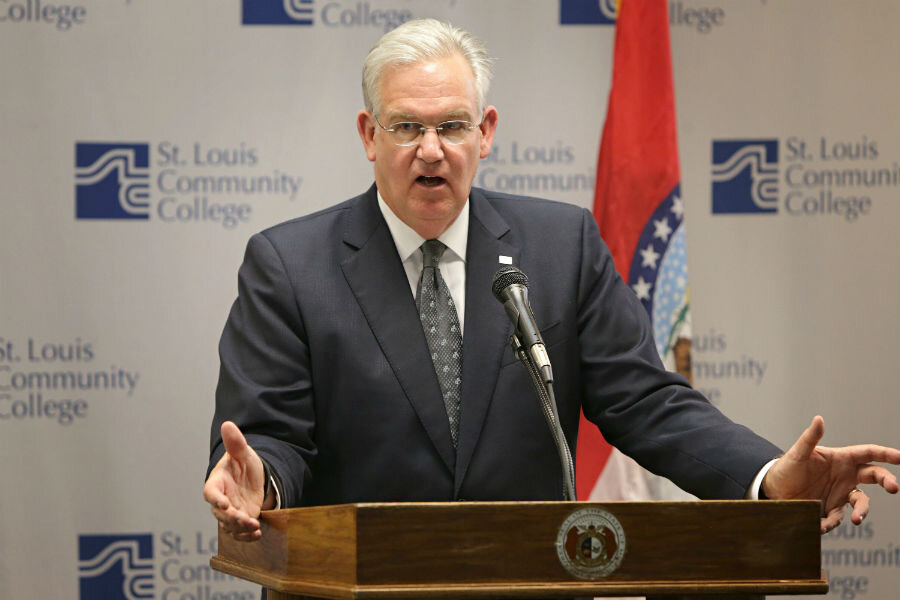Why Missouri Gov. Nixon was ordered to serve as a public defender
Loading...
What do you do when you need a lawyer and can't find one? If you're the head of Missouri's public defender system, you call on the state's most powerful attorney: the governor.
Michael Barrett appointed Gov. Jay Nixon (D) to represent a man charged with assault, citing his department's lack of funding and an unusual state law that allows him to appoint any member of the Missouri Bar to represent individuals who can't afford to hire a lawyer.
"Given the extraordinary circumstances that compel me to entertain any and all avenues for relief, it strikes me that I should begin with the one attorney in the state who not only created this problem, but is in a unique position to address it," he wrote in an open letter to the governor.
After budget cuts, the veto of a bill that would have lightened the workload for public defenders, and the withholding of funding increases that were expected this year, Barrett had no choice but to assign the governor to the case, he wrote.
By late Wednesday, Governor Nixon had not replied to requests for comment from The Washington Post, the Associated Press, and others.
In June, Missouri's state's legislature passed a $4.5 million funding increase for the public defender system, after the office requested a $23.1 million increase, saying its attorneys were overburdened. Nixon had suggested a $1 million increase.
Last month, Barrett and the state's Public Defender Commission filed a lawsuit claiming that the governor had withheld most of that increase, the St. Louis Post-Dispatch reports.
In 2014, a study found that the Missouri public defender's office lacks the resources to serve the state, and recommended adding almost 270 additional attorneys. The state's system has struggled with high caseloads, low salaries, and overworked attorneys, leading to high rates of turnover, the Post-Dispatch reported.
Missouri's challenges are in line with a national trend.
"No one is saying police and prosecutors get too much money, here or elsewhere. They’re scrambling to do the best they can with limited resources," reported The Christian Science Monitor's Henry Gass in June. "But there’s also little dispute that police and prosecutors – with their comparative financial advantage – are producing a workload that public defender offices are straining to cope with."
In New Orleans, for example, public defenders have a $6 million budget and 82 full-time employees, while the Orleans Parish district attorney's office has a $14.5 million budget and 210 employees, and the New Orleans Police Department has a $140 million budget.
As Mr. Gass reported:
The stress is inherent in the American view of justice. Those trying to put people in jail get the money, says Stephen Saltzburg, a professor at The George Washington University Law School in Washington.
“Most people would rather pay for prosecutors and police to do their jobs than they would to spend money on defense, even though the reality is if they were ever arrested and charged with a crime, they would conclude that no amount of money was too much to ensure them a fair trial,” he says.
In Missouri, Barrett could have appointed any private attorney to address the crisis. However, he says that wouldn't be fair, as they are trying to pay rent and did not contribute to the crisis.
"Providing counsel to poor people who face incarceration is the obligation of the state," he told the Post-Dispatch.
This report includes material from the Associated Press.








